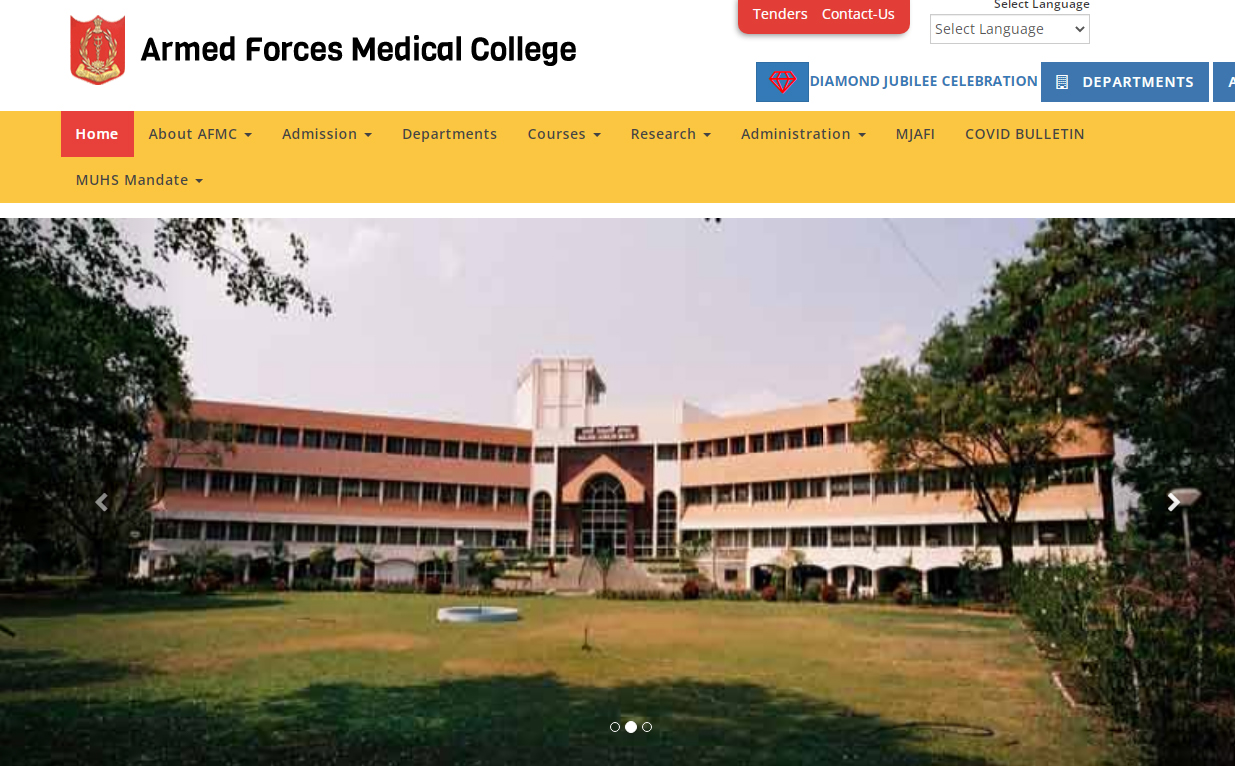Armed Forces Medical College, Pune

Armed Forces Medical College, Pune is a premier medical institution in India. AFMC has the distinction of being the first medical college set up by the Armed Forces of any country in Asia. The college is a unique institution which combines medical education with training specific to the health care needs of the Armed Forces. AFMC has been consistently rated among the top three medical colleges in India by surveys published by reputed newsmagazines for the past decade.
- Read more about Armed Forces Medical College, Pune
- Log in to post comments
- 127 views


